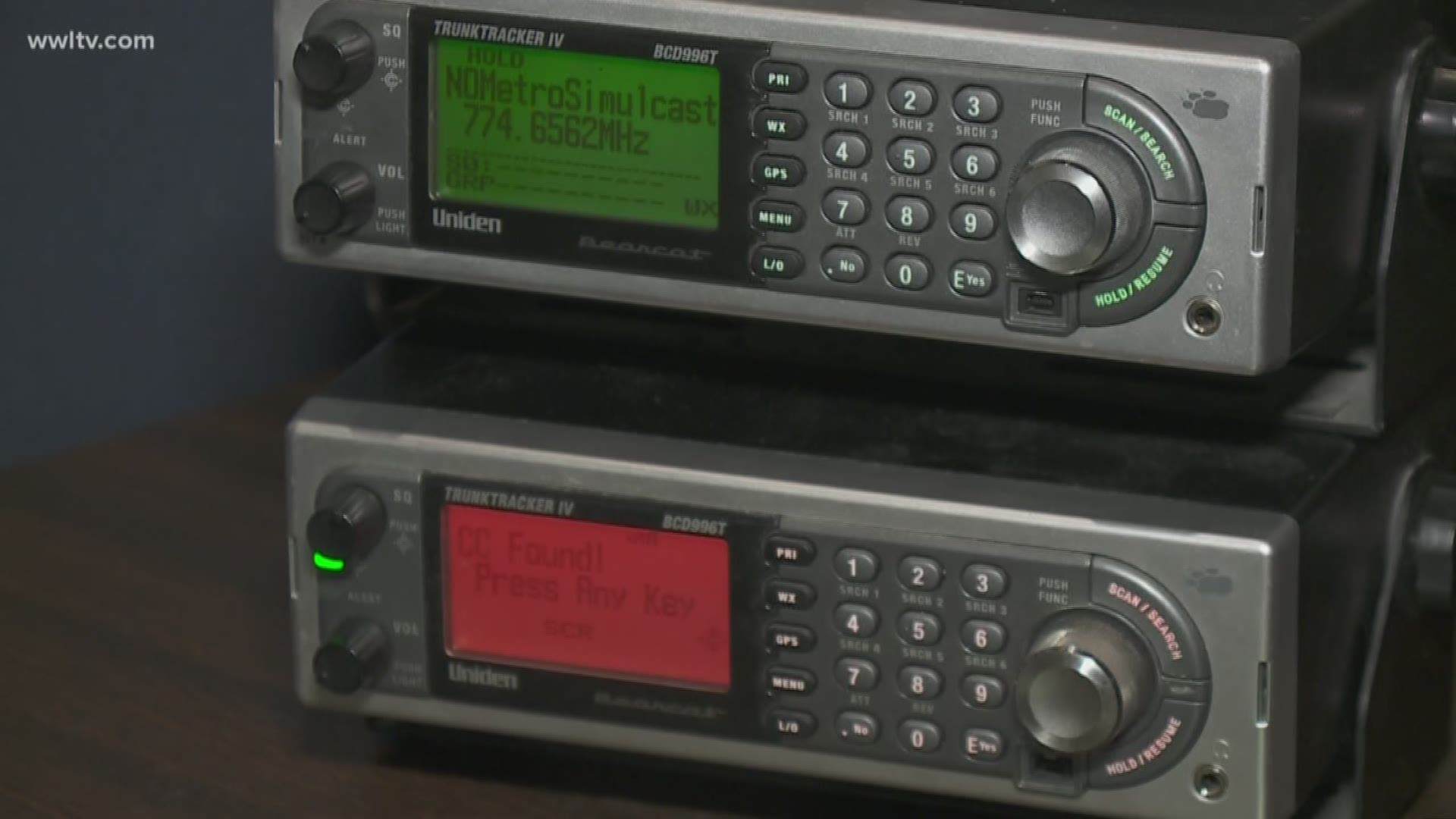New Orleans’ 911 agency, the Orleans Parish Communication District, says it's going to start scrambling its emergency radio transmissions on Feb. 1.
Encrypted radio signals have been a major national trend in policing, and the New Orleans Police Department is one of the few agencies in the area that broadcasts on a completely open, unencrypted channel.
OPCD Director Tyrell Morris said the district is simply aligning with best practices to protect law enforcement and first responders.
“I would not say this was ‘secrecy,’ but more of the agencies exercising ‘due diligence’ to ensure sensitive law enforcement information regarding incidents in progress is secure,” Morris said. “There have been several instances in the law enforcement community where police were coordinating a response and the suspects were monitoring the radio traffic and able to get away.”
OPCD has had the technology in place to encrypt all public safety transmissions for years, but has not done so. In 2012, the NOPD announced it would begin scrambling its signal along with Jefferson Parish and other local public safety agencies, but then-Mayor Mitch Landrieu decided against it.
There was a public outcry when the plans were announced. Critics said it was overly secretive and an excuse for NOPD to avoid public scrutiny.
Retired Marine Lt. Col. Jerry Sneed, a former New Orleans deputy mayor for Homeland Security who consolidated the city's old 9-1-1 emergency system, believes that was because of lingering distrust from police abuses after Hurricane Katrina.
“It's time to, one, protect our officers; and two, to give the police a little confidence that they can do their job and will do their job,” said Sneed, who recommended the move to Landrieu in 2012 and retired earlier this year from the OPCD.
After the storm, the police were caught covering up the killing of unarmed civilians, including the massacre on the Danziger Bridge and the shooting and burning of Henry Glover. Those, along with other improper uses of force prompted the U.S. Justice Department to impose new controls and oversight through a consent decree.
"Former NOPD Chief (Ronal) Serpas and now Chief (Michael) Harrison worked hard to build that confidence and now with a (federal) consent decree, I think maybe now's the time to do it while maybe 2012 it wasn't the right time,” Sneed said.
Jim Olsen, chairman of the Mid-City Security District, also said the NOPD has come a long way since then, working more closely with community groups and welcoming more scrutiny. That’s why he supports encryption as a way to protect officers, but worries about how the move will be perceived.
“They’ve made a lot of progress over the years and I’d hate to see that damaged by anything or go backwards on it,” Olsen said. “I think there’s a certain percentage of the population of New Orleans who’s just not going to trust them no matter what. But I would hope this is not perceived by those who have gained that trust in the last few years … as a step backwards.”
Still, as recently as 2014, Officer Lisa Lewis shot an allegedly unarmed man, Armond Bennett, during a traffic stop in Algiers, and NOPD didn't tell anyone for two days. Lewis and her partner didn’t activate their body cameras, as required, and the city ended up paying Bennett $120,000 to settle a civil rights lawsuit.
Until the media found out about the incident and started asking questions, the NOPD only mentioned that Officer Lewis was injured, not that she shot anyone.
“Clearly, it felt through the cracks, and our (public information) office did not get the info out and I apologize for that,” Serpas said at a press conference more than 48 hours after the shooting.
The app Broadcastify puts thousands of police channels from around the world online. Its founder, Lindsay Blanton III, told WWL-TV he's disappointed that NOPD would take that away.
“There are some agencies that do not like the general public listening to their communications online,” Blanton said. “However there are many agencies that are pleased to involve the general public in their day-to-day operations, and even broadcast directly to us so that citizens are able to hear their public safety officials at work.”
But Mayor LaToya Cantrell’s administration promised that media outlets, which have already been using equipment to receive Jefferson Parish Sheriff’s Office’s encrypted signals, will be able to do the same with OPCD communications after Feb. 1.
Olsen said that’s important.
“The public awareness of what's going on is so critical towards developing trust with NOPD and their confidence that they're being told the real situation as opposed to things being masked. And media can help do that,” he said.
New Orleans officials said encryption will not affect the retention and production of public records, such as recordings of 9-1-1 calls and police radio communication once a case is closed.

